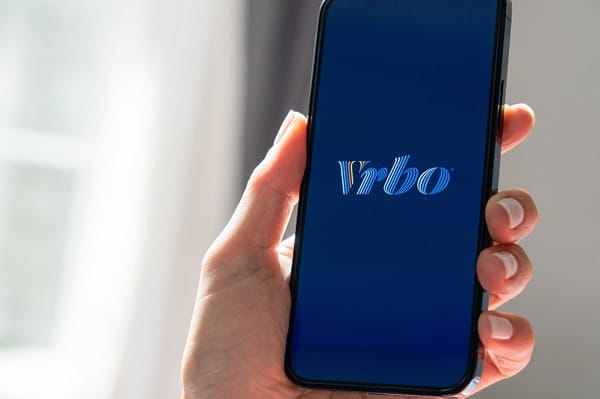What STR License Airbnb Hosts Need to Operate in the US

This handy guide explains everything Airbnb hosts need to know about obtaining a short-term rental license for their vacation rental property. Unfortunately, you’ll likely need more than one license or permit to run your Airbnb business legally.
The good news is, if you’re wondering about the paperwork involved, we have answers. This article is here to guide you through the process of short-term rental licensing. There are a number of things you need to be aware of when applying for an STR license, so let’s dive into it.
Understanding Short-term Rental (STR) Licensing
Before we get started, it’s important to state that while you can use this article as a basic overview, you shouldn’t take it as legal advice. Owning a vacation rental involves meeting the requirements of a complex patchwork of rules and regulations.
Here’s why securing advice from a legal professional is crucial.
Compliance prevents risks of legal issues and fines
Some counties and municipalities are much stricter than others when it comes to short-term rentals. For instance, New York City has a whole suite of rules.
NY has a ban on the short-term rental of entire apartments or buildings for periods of less than 30 days. If you live in the property as your primary residence, you can rent out part of it for a period ranging under 30 days, but even so, you can host no more than two paying guests at once.
Fosters community ties and avoids potential conflicts
The STR property owner will have to consider the local area when thinking about purchasing real estate for short-term rental. But if guests don't abide by your rules, it’ll be you who suffers the blowback in terms of irritated neighbors and potential trouble with the city council.
Stay within guest limits
When investing in short-term rentals, it might be tempting to exceed the allowed guest limit. It could be a costly mistake! Always follow your STR license conditions, whether you're renting a villa or a small apartment. If local rules state a maximum number of guests per dwelling unit, it’s vital to respect them.
What Factors affect STR licenses and regulations
Note that not everything listed here will necessarily be relevant to your circumstances, but plenty will be, and it’s important to nail down the essentials in advance.
Local zoning and municipal ordinances
Zoning ordinances define specific geographic areas as being for commercial or residential use. This can be a problem if you find your dream property but you can’t get an STR license for it because renting out short-term rental units counts as a business.
So, tread carefully. The appropriate zoning restrictions are something you should check out before you make an offer on a specific piece of real estate. You have to know for certain that it’s suitable for short-term vacation rentals before you make an application for a new license.
Business permit requirements and tax obligations
Be sure to understand all the local permit requirements and which taxes you’ll need to pay. In many cases, you’ll need some kind of general business license in addition to your STR license. To get a STR license, you’ll need to pay a fee, which could amount to a few hundred dollars.
Hosts must also register with tax authorities and are responsible for collecting and remitting sales and lodging taxes on guest stays.
In addition to paying license fees and lodging taxes, you’ll also need to file tax returns as a short-term rental operator.
Renewal procedures and policy updates
Even once you’ve secured your first Short Term Rental license, that’s not the end of the story. You’ll generally need to renew your license, most every calendar year and commonly on a twelve-month schedule.
Community and homeowners' association rules
If you purchase a property that’s part of a homeowner’s association, you’ll automatically become a member of the HOA when the sale closes. That means you’ll then be responsible for following all the rules and regulations the HOA imposes on its members.
These rules encourage property owners in residential neighborhoods to look after their properties to an agreed-upon community standard. They apply equally to those having their permanent residence there and landlords offering short-term and vacation rentals. One thing to beware of is that some HOAs explicitly prohibit short-term rentals.
Safety and building code standards
The building code most commonly used in the US is the International Building Code. It has been adopted by all 50 states, the District of Columbia, Guam, the Northern Marianas Islands, New York City, the US Virgin Islands, and Puerto Rico.
Building code compliance is essential if you hope to operate short-term rentals effectively. And in some regions, special rules apply. For instance, the California Building Code is pretty strict because the San Andreas Fault runs through the state. That means buildings there have to be constructed and managed with a view to withstanding a major earthquake.
Online platform requirements
Should you go with Airbnb or Vrbo? Or maybe Booking.com is more your style? Selecting the right online portal can be a challenge. That said, it’s definitely a good idea to consider all these platforms, and you can use a PMS like iGMS to manage them all in one place.
Before creating an online listing, make sure you fully understand the requirements of each platform. Airbnb, for example, is that it allows you to list shared spaces, such as a single room in a shared property. On the other hand, Vrbo and Booking.com are aimed more at short-term rentals of entire apartments or houses.
Common Licenses Required for Operating Short-term Rentals
At this point, it would probably be useful to draw together everything discussed so far and provide a list of the most common licenses you’re likely to need in the short-term rental business.
General business licenses
First, you’re running a business, so you might need to obtain a general business license. Most states don’t require it, but plenty of counties and cities do.
A valid general business license – also known as a business operating license – entitles you to do business in your locality. If you’re a resident in one state but renting out property in another, it’s best to consult with an expert in business law to make sure you stay compliant.
Occupancy tax licenses
You may also need a license to collect occupancy tax. You’ll use this license number to report the Transient Occupancy Tax (TOT) you collect from your renters (see below).
Short-term rental permits
Most short-term rental operators in the US will need an STR permit. This serves as a guarantee that your STR property meets all the county and requisite building codes, safety requirements, and zoning restrictions.
Health and safety inspection certificates
Before you put your property on the rental market, it will need to be certified for health and safety. Again, the precise rules vary between jurisdictions, so make sure to double-check that your property is fully compliant with all necessary regulations in your area before you go any further.
Zoning permits
If you’ve followed our advice about buying with one eye on zoning laws, you shouldn’t have any problems here. But if you want to apply for a change of use for the land you’ve bought, you’ll need to seek a zoning permit.
Generally speaking, this isn’t really worth doing for short term rental applicants unless you’re planning a large redevelopment project. Most short-term rental owners will find the cost of applying for a zoning permit in terms of time and money prohibitive.
That said, if this is a route you want to go down, bear in mind it’s a multi-stage process that involves getting the approval of a number of different bodies:
- City staff
- Planning commission
- Board of Zoning Adjustment
- Local government.
You should never buy land on the assumption that you’ll be able to get a zoning permit afterward.
Transient occupancy tax (TOT) Registration
Check whether you need a license to collect TOT. If you do, make sure to contact them to establish whether registration is part of that process or whether you need to complete it separately.
The rate payable (also known as the lodging tax rate) varies widely from state to state, from as low as 0% in Alaska and California to as high as 15% in Connecticut.
Homeowner’s association (HOA) approval
As previously mentioned, you need to make sure you follow all the relevant regulations if you buy a property that’s subject to HOA rules. All HOAs have a set of governing documents that you should study before committing to a purchase.
Property manager's compliance
Suppose you’re thinking of hiring a property management company. In that case, you need to make sure that everyone involved in the process of letting your short-term rental property is fully compliant with all the necessary regulations.
Property managers often must hold a real estate licence, especially if they take care of the financial aspects of the business. Also, in most U.S. states, property managers who operate a property management company might need a real estate broker’s license.
And if you’re managing a portfolio of several properties, it can be a good plan to set up your own management company as a hub, so you have full control of operations and can prioritize compliance.
How to Apply for a STR Licence Step by Step
Here’s a general step-by-step guide to help you navigate the process and set your vacation rental up the right way:
Step 1: Gather Required Documents
Before you begin your application, collect the documents most cities typically ask for, such as:
- Proof of property ownership or a notarized permission letter from the owner.
- A site plan or floor plan showing exits and sleeping areas.
- Proof of liability insurance.
- Photo ID.
- Tax ID or proof of registration with your state’s tax authority.
Step 2: Complete the Application Form
Most cities provide an STR license application form online or through the local planning or licensing department.
You can usually find it on your city or county’s official website. Look for pages titled “Short-Term Rental License” or “STR Permit Application.” Some areas also require a separate business license application.
Step 3: Pay the Application Fee
Fees vary by location, ranging from $50 to several hundred dollars. In Austin, TX, for example, the rental licensing fee is $235.00, plus a notification cost of $50.00 from the Planning and Development Review Department to notify neighbors, which makes the total $285.00.
Be sure to check whether it's a recurring annual cost.
Step 4: Schedule Required Inspections
Many cities require a safety inspection before issuing a license. This may include: smoke and carbon monoxide detectors, fire extinguishers, clearly marked exits, address numbers visible from the street.
Once scheduled, an inspector will visit your property and provide a report. You may need to correct any issues before you get approved.
Step 5: Post Legal Notices or Notify Neighbors
Some local governments ask hosts to notify neighbors or post a notice on the property. You may also need to post your license number visibly inside the unit and in your listing.
Example
Prince George’s County, east of Washington, D.C., Maryland, has its own set of short-term rental regulations. Hosts must apply through the county’s online Portal and pay a $150 fee. A unique requirement of the process is the 90-day provisional license issued while the full application is being processed.
Applicants are also required to complete human trafficking awareness training and pass a quiz, a step not commonly required in other cities. If the license is denied, hosts can appeal the decision through a two-step process, with the second appeal requiring a $200 fee.
Like many places in the U.S., Prince George’s County sets its own rules independently. Short-term rental regulations are not standardized statewide, as each city or county can establish its own rules.
Key takeaways
Securing an STR license can seem like a daunting challenge, but it doesn’t have to be. The most important point is that you should approach it as a commercial business project – because that’s what it is. The key is to research your city and county, since every city imposes its own rules.
And when you’re ready to get your vacation rental business off the ground, simplify management with iGMS. Manage all platforms and guest communication from one place, assign tasks to cleaners, and take care of your properties and business right from your phone.




![Complete Vacation Rental Email Marketing for Hosts [+ Top Tools]](/content/images/size/w600/2026/01/email-marketing.jpg)
